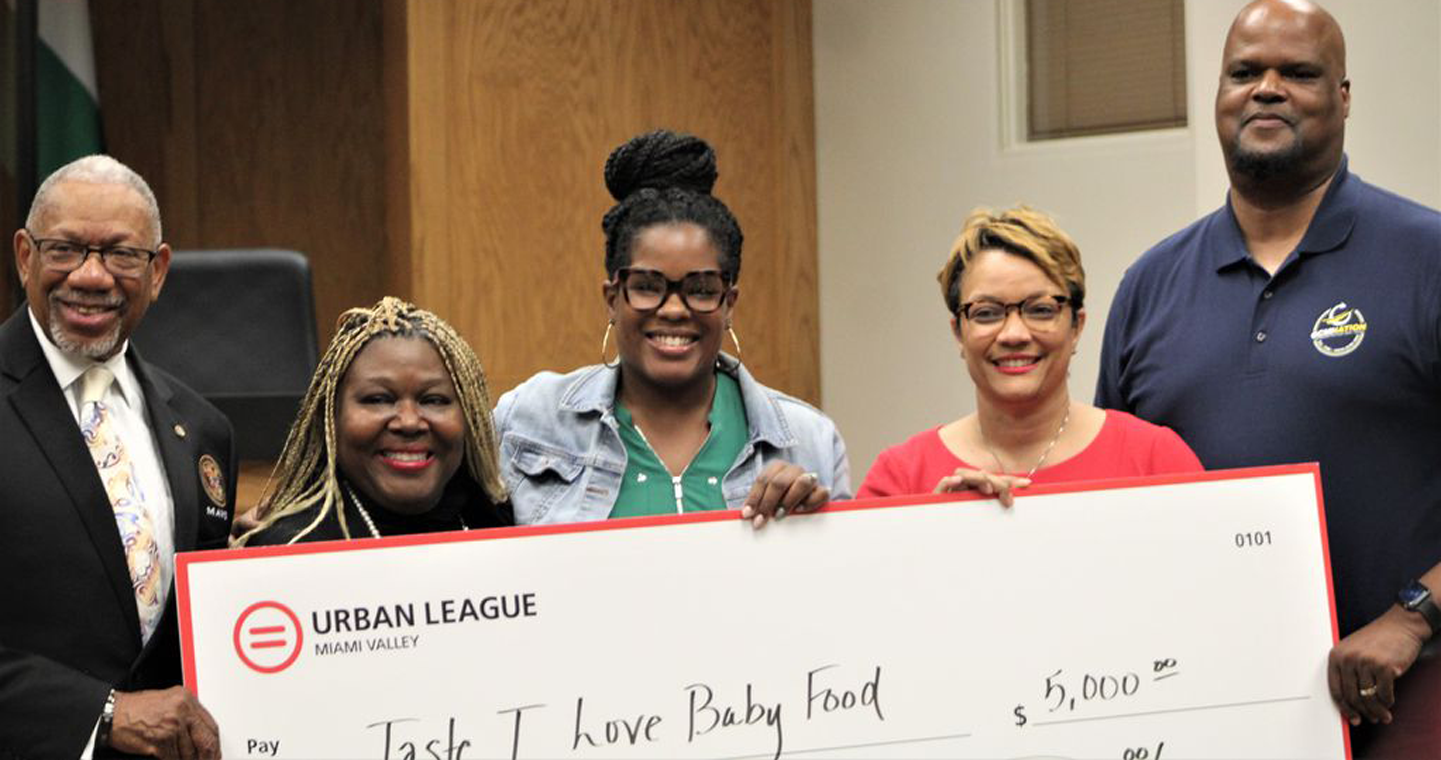Building Wealth and Opportunity for Black and Brown Entrepreneurs
In June of 2021, the city of Dayton, Ohio dedicated $7.6 million of its allocated $138 million ARPA recovery funds to support the growth of Black and Brown-owned businesses. Through the investment, the City aims to provide wealth-building opportunities to residents who were excluded and/or harmed by past policies. Their three-part approach includes a micro-grant opportunity fund, capital investment assistance, and the creation of a new Inclusive Business Recovery Opportunity Center to provide technical assistance. Shelley Dickstein, Dayton’s City Manager, explains, “We were trying to identify ways to improve wealth-generating opportunities because we knew that was largely restricted to our African American community, because of the redlining and the lack of ability to own a home. Whereas much of the white population received a leg up from the federal government.”
Why this investment?
Although 39 percent of Dayton’s residents identify as Black or African American, there were fewer than two Black-owned businesses for every 1,000 Black residents as of 2017, and the annual revenues for Black-owned businesses were seven times less than white-owned businesses in the area. Recognizing this disparity as both an equity challenge and an important economic development opportunity, the city of Dayton partnered with the Nowak Metro Finance Lab at Drexel University, along with Accelerator for America and Mastercard Center for Inclusive Growth, to understand the baseline situation and develop a strategy to support the growth of its local Black and Brown-owned businesses.
While this effort was underway, the COVID-19 pandemic hit, illuminating and exacerbating the challenges faced by Dayton’s entrepreneurs of color. Dickstein describes how the City worked to proactively set the table and bring in business support groups like the Urban League and the Dayton Chamber of Commerce’s Minority Business Development Center to ask if they would help implement the strategy—with the ultimate goal of building a “cohesive, collaborative ecosystem” described in the Inclusive Recovery Playbook.
ARPA funding became available soon after the Playbook was launched, and Dayton’s recovery plan emphasized alleviating multi-generational poverty and health disparities in underserved neighborhoods, including a special focus on Black and Brown businesses. Using social determinants of health measures, the City prioritized five neighborhoods with the highest needs. Four out of the five of these neighborhoods were located in West Dayton, a majority-Black area that experienced redlining and decades of disinvestment. Dickstein explains that the plan sought to “intentionally drive investment into these areas that had been disinvested in,” with $55 million allocated toward neighborhood investments and two-thirds of those funds dedicated to West Dayton. The City also dedicated $7.6 million toward supporting Black and Brown-owned businesses.

What is this investment?
Dayton’s initiative to support Black and Brown businesses aims to take a whole-ecosystem approach to drive supplier diversity, capital access, and workforce inclusion. The effort includes three components: the Inclusive Business Recovery Opportunity Center (IBROC), a micro-grant opportunity fund, and capital investment assistance.
The $3 million planned Inclusive Business Recovery Opportunity Center will provide greater coordinated support and technical assistance to Black and Brown business owners. The City partnered with Next Street Consulting and is assessing the strengths, gaps, and needs of the Black and Brown business community to ultimately open up the Inclusive Business Recovery Opportunity Center in 2025. Assistant to the City Manager, Lamonte Hall Jr., says the center will be established to be an independent, self-sustaining entity.
The $1.5 million micro-grant opportunity fund to support women and minority-owned startup businesses is being administered by the Miami Valley Urban League. The fund provides grants of up to $10,000 for operational emergencies, certification programs, and business opportunities. As of January 2024, the Miami Valley Urban League has awarded more than $135,000 to 23 small businesses in Dayton.
Lastly, $3.1 million was dedicated to helping Black and Brown businesses make capital investments, and the City has put out a call for proposals from businesses looking to grow their revenues.
Centering equity in the program
Dickstein says that being intentional, upfront, and carrying through on leading with an equity lens is critical to their success. “We had equity in every application,” Dickstein says. “We had equity in our evaluation. We had equity in our performance measures. We set a table, a larger procurement table to have all of the people receiving ARPA funding to make sure that we were optimizing everything we possibly could.”
The program has faced some challenges providing support to small businesses. such as business bankruptcy and tax errors. The City hopes to learn from these challenges and has partnered with Next Street to understand why and how these specific situations occur so they can match business owners with the correct resources. By forensically identifying the problem, the City hopes to incorporate preventative measures into their ecosystem.
Outcomes to date
Dayton has provided 9 businesses and nonprofits with direct support, totaling almost $3 million. These funds are helping businesses such as 6888 Kitchen, a Black woman-owned restaurant industry incubator that received a $750,000 grant to purchase equipment like refrigerators, freezers, cooktops, prep tables, and hood systems. Speedie Daycare is another small Black-owned business that received a $75,000 grant to upgrade its facilities, which has led to a 50 percent client increase. In addition, the Miami Valley Urban League is in its second round of micro-grant awards and plans to provide over 550 small business grants through a $1.5 million Dayton Recovery Plan grant.
Toward transformative change
The city of Dayton plans to continue this project to support small Black and Brown-owned businesses thanks to the transformational power of ARPA funding. Dickstein shares that her biggest advice to other jurisdictions seeking to promote equity is to begin where you want to end, determine what the driving outcome is, and build backward. This includes using data and engaging with the community to guide investment prioritization and spending decisions.
